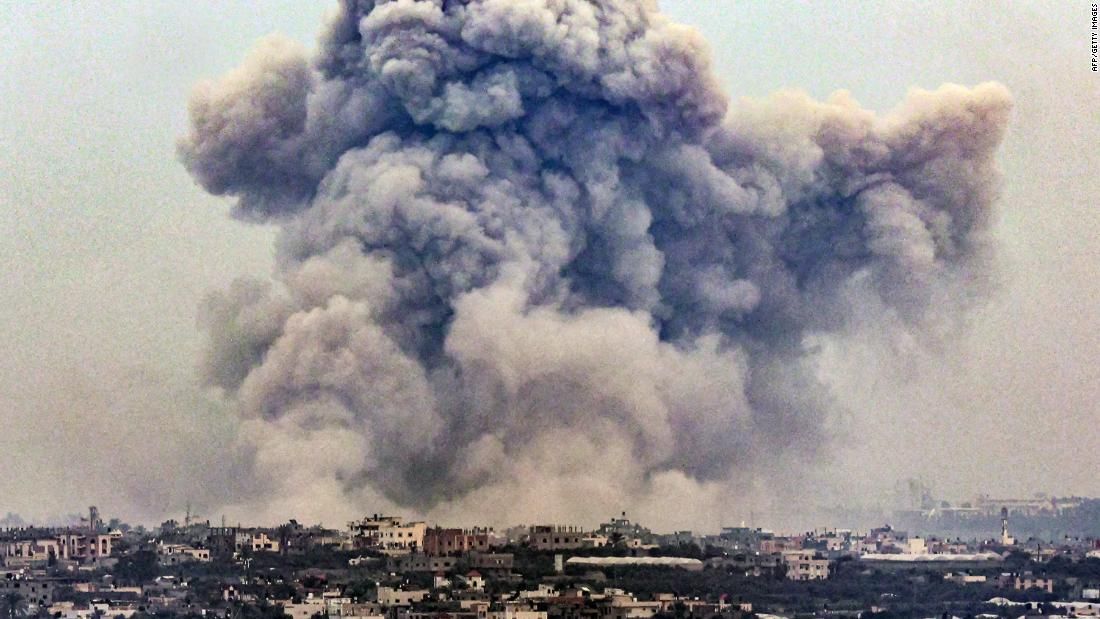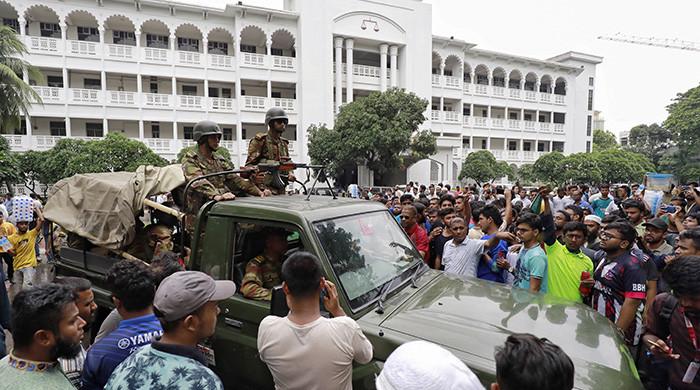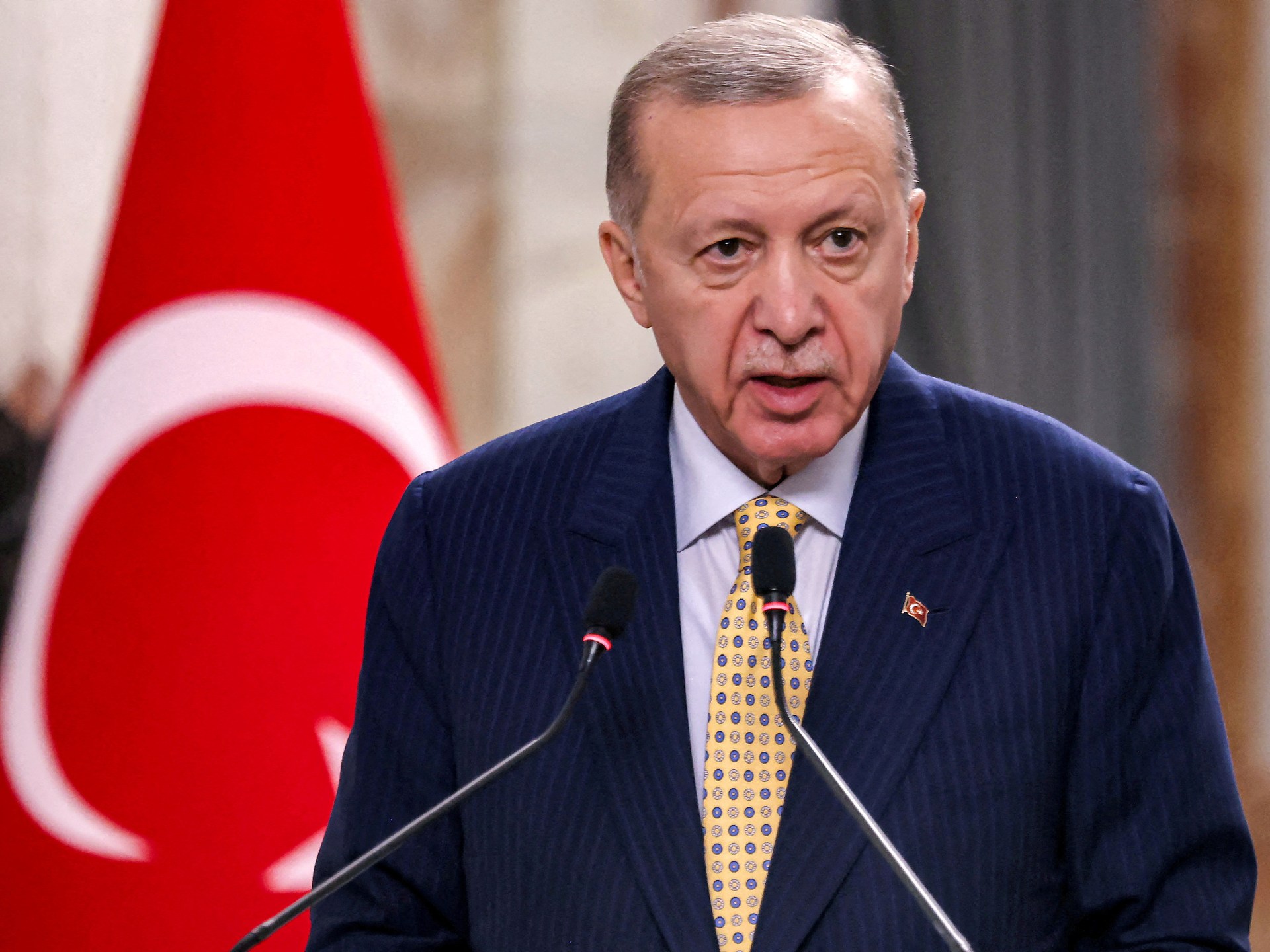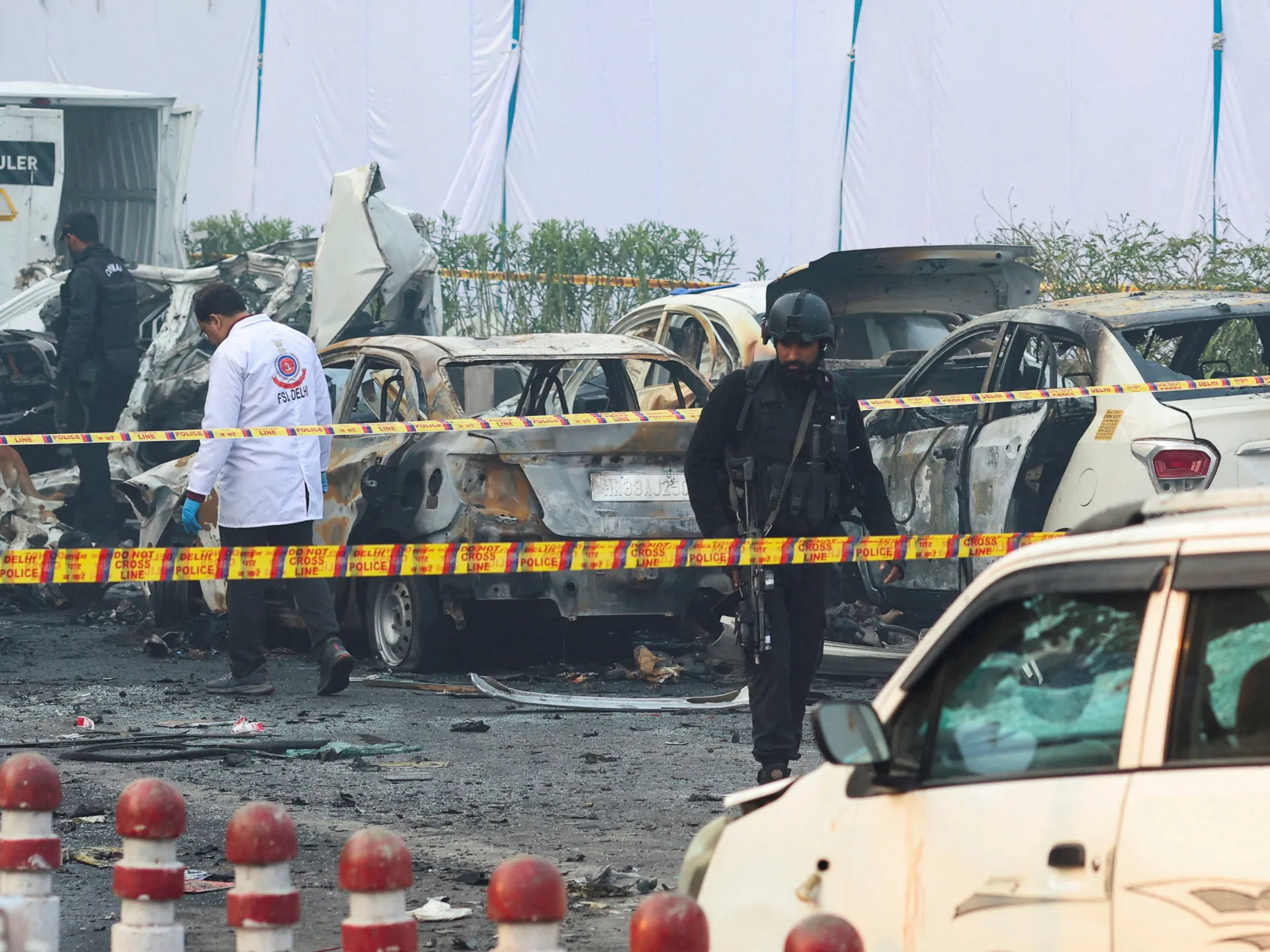Donkey carts packed with blankets, mattresses piled on top of cars and sparsely stocked market stalls lined the mud-covered streets of Nuseirat in central Gaza on Thursday, through which waves of displaced people made their way to the nearby Deir al-Balah area.
Generations of Palestinians camped in the rubble of collapsed buildings, while others carried their belongings to move further south, as the Israeli army expanded its operations in central and southern Gaza.
Many had mixed emotions. Deir al-Balah was supposed to be safer, at least according to the Israeli army’s instructions, but living conditions were primitive at best.
“There are no tents, no food, no water, people are swarming in the warehouses, it is a very difficult situation,” said Ramzi Al Jammal, a civilian from the Al-Bureij refugee camp, who was displaced to the Hospital of the Martyrs of Al-Aqsa.
Al Jammal said he had been separated from members of his extended family, including his children and grandchildren, and wished he had never left his home.
“I would rather die at home,” Al Jammal said. “I’m sorry I left my house, I wish we were together to die together or live together.”
New orders: On Thursday, the Israel Defense Forces issued a new set of evacuation instructions to Palestinians, including temporarily suspending “military activities” in the Al-Brook and Jaffa neighborhoods of Deir al-Balah.
Amnesty International has previously warned that calls by the Israeli army to evacuate could amount to a “forced displacement of the civilian population”, in violation of international law.
The war that began on October 7 has displaced at least 1.93 million people in Gaza, according to the United Nations Relief and Works Agency for Palestine Refugees (UNRWA). Thousands of families have moved several times as Israel’s offensive has spread to new areas.
Hundreds of thousands of displaced Palestinians live in tent camps spread across southern cities, with little access to basic health services, food, fuel or clean water. Many sleep on the streets with inadequate clothing to keep warm during the winter season.
Abdul Rahman, a civilian who has not fled Nuseirat, told CNN that trying to survive in makeshift camps was no better than living among the ruins of central and northern Gaza.
“We have nowhere to go,” he said Thursday. “There is no space, people sleep on the street. There is nowhere to sit safely in this area.
“There is no water, there is no electricity. “They bombard us and attack us without any alarm… We have nothing to do, we have no food.”
Abu Adnan, a displaced civilian now living on the streets of Deir al-Balah, told CNN that he wishes he had “stayed home and gotten shot.”
“This is not life, it is humiliation. “I’m not going anywhere after this unless I go back home,” she said.
“I tried to return home twice but my children prevented me. There are no bathrooms, no food, no water, no clothes. With all this, I would rather go home and die with dignity than die like this.”












